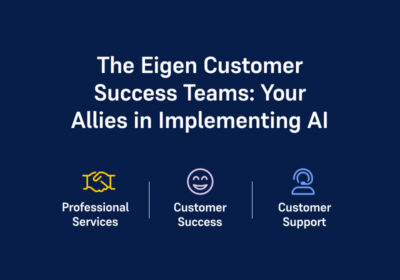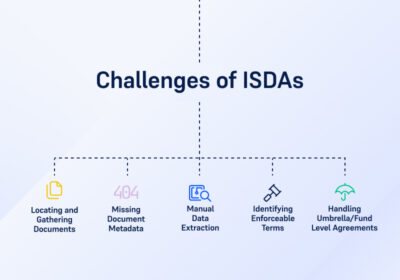Why a small data approach is big news for automating information processing
Data has become a currency ubiquitous across industries, with big data garnering the highest value. Big data is defined by Gartner as “high-volume, high-velocity and/or high-variety information assets that demand cost-effective, innovative forms of information processing that enable enhanced insight, decision making, and process automation”. Big data lives up to its definition, helping corporations understand consumer behavior and guide major business decisions. However, big data is not the only approach. This is great news, of course, for those without the high volume of information to access ‘big data’ insights, but it’s also an advantage for big data purists. Small data insights can be leveraged alongside big data to great effect. Small data levels the playing field by allowing any business to train models using smaller data sets targeted to their specific needs. It also means that companies of any size or maturity can get ahead of problems by compiling and leveraging insights as the information flows in, rather than having to wait to amass significant volumes of data before they can begin to realize its value.
Solutions that use cutting-edge machine learning techniques to train models on small sets of organizational data mean quality in, quality out. These small data model solutions use the documents that affect your business most, which can include contracts, reports, invoices, and more. Small data solutions require less than 50 training examples to develop machine learning models that produce high-quality, high-value data. That data can be oriented around a desired business improvement or outcome and the models tailormade to meet that specific need. “Small Data means feeding specific and higher quality inputs into the model – and consequently, getting more precise, relevant, and impactful insights in your outputs,” is how our co-founder and CEO, Dr Lewis Z. Liu, explains it. Rather than creating a high-level overview of your business, your curated inputs enable you to pinpoint the information that’s essential to the tasks and problems at hand. Your small data insights are then perfectly aligned with your business needs. That relevancy can help drive cultural adoption within your organization, something that’s cited as one of the biggest hurdles to becoming a truly data-oriented business. With a solution custom built for your organization that automates the compilation of familiar information, employees can reap the benefits of data insights more readily.
Big data offers important guidance about trends and the markets at large but acting on those trends in a way that makes a meaningful impact is reserved for a select few. Big data is not going anywhere, nor should it. But small data has distinct advantages including making it easier for employees to become comfortable with the resulting insights without much effort. As an Eigen client who is the Managing Director and Head of Operations at a Global investment group said, “We’ve been able to achieve our goals without needing machine learning experience or support from our IT team, which has been great”. This level of accessibility enables your team to build trust without having to worry about the science behind the data or how that information was arrived at. Removing that barrier to entry makes it easier and less intimidating to leverage the data insights being generated. Employees can then react quickly and make specific improvements, helping them to realize the power of a small data solution more readily. This sets your organization on a path to becoming a truly data-driven business. A small data approach, and the specific information that it delivers, is seen as a resource, rather than an adversary, offering insights all teams can work from to drive efficiencies and returns at every level.
Society wouldn’t function without both the ‘big picture’ people and the ‘attention to the detail’ people. Something similar can be said for big and small data. The approaches coexist together whether they are utilized or not, but those who leverage both are at a distinct advantage.
Starting small means starting sooner and a ‘data oriented’ business strategy can’t be realized without effecting that change in mindset. Small data is an incredible counterpart to the big data solutions we hear about so often. The value of small data is on the rise and the Eigen no-code AI-powered intelligent document processing platform can help you unlock that, while still ensuring that you’ll never have to choose between big or small data again.
Find out more about intelligent document processing (IDP) or request a platform demo.

-
World Economic forum 2020
-
Gartner Cool Vendor 2020
-
AI 100 2021
-
Lazard T100
-
FT Intelligent Business 2019
-
FT Intelligent Business 2020
-
CogX Awards 2019
-
CogX Awards 2021
-
Ai BreakThrough Award 2022
-
CogX Awards Best AI Product in Insurance
-
FStech 2023 awards shortlisted
-
ISO27001
-
ISO22301
-
ISO27701
-
ISO27017
-
ISO27018


















